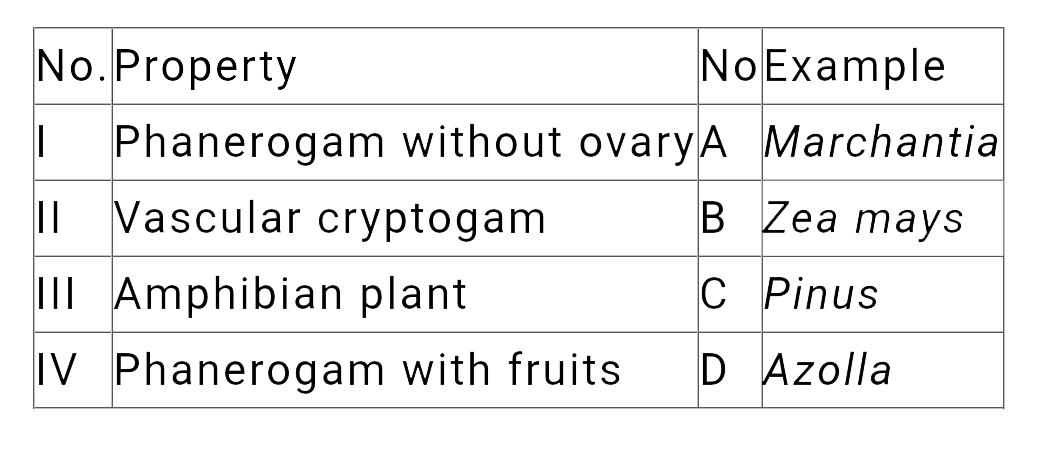Many secondary metabolites of plants have medicinal properties. It is their misuse that creates problems. Justify the statement with an example.
Step-by-Step Solution:
1. Understanding Secondary Metabolites:
- Secondary metabolites are organic compounds that are not directly involved in the normal growth, development, or reproduction of plants. They play a crucial role in plant defense mechanisms and have various medicinal properties.
2. Medicinal Properties:
- Many secondary metabolites, such as alkaloids, terpenes, and flavonoids, have been found to possess medicinal properties. These compounds can be used for therapeutic purposes, such as pain relief, anti-inflammatory effects, and antimicrobial activities.
3. Example of Morphine:
- A well-known example of a secondary metabolite with medicinal properties is morphine, which is derived from the opium poppy (Papaver somniferum). Morphine is widely used as a potent painkiller in medical settings.
4. Misuse of Morphine:
- Despite its medicinal benefits, morphine can be misused. When individuals consume morphine without medical supervision or in excessive amounts, it can lead to addiction, overdose, and serious health complications. This misuse highlights the potential dangers associated with secondary metabolites.
5. Another Example - Codeine:
- Another example is codeine, which is commonly used as a cough suppressant in various cough syrups. Similar to morphine, codeine can also be misused, leading to dependency and adverse health effects.
6. Conclusion:
- While secondary metabolites like morphine and codeine have significant medicinal properties, their misuse can create serious health problems. This emphasizes the importance of responsible use and regulation of these compounds in medical practice.
- Secondary metabolites are organic compounds that are not directly involved in the normal growth, development, or reproduction of plants. They play a crucial role in plant defense mechanisms and have various medicinal properties.
- Many secondary metabolites, such as alkaloids, terpenes, and flavonoids, have been found to possess medicinal properties. These compounds can be used for therapeutic purposes, such as pain relief, anti-inflammatory effects, and antimicrobial activities.
- A well-known example of a secondary metabolite with medicinal properties is morphine, which is derived from the opium poppy (Papaver somniferum). Morphine is widely used as a potent painkiller in medical settings.
- Despite its medicinal benefits, morphine can be misused. When individuals consume morphine without medical supervision or in excessive amounts, it can lead to addiction, overdose, and serious health complications. This misuse highlights the potential dangers associated with secondary metabolites.
- Another example is codeine, which is commonly used as a cough suppressant in various cough syrups. Similar to morphine, codeine can also be misused, leading to dependency and adverse health effects.
- While secondary metabolites like morphine and codeine have significant medicinal properties, their misuse can create serious health problems. This emphasizes the importance of responsible use and regulation of these compounds in medical practice.
Topper's Solved these Questions
Similar Questions
Certain pathogens are tissue/organ Specific. Justify the statement with suitable example.
View SolutionMatch the property of the given plant with is example

View SolutionThe term ' desirable trait ' can mean different things for different plants. Justify the statement with suitable examples.
View SolutionThe term 'desirable trait' can mean different things for different plants. Justify the statement with suitable examples.
View SolutionThe effect of uncertainty principle is significant only for motion of microscopic particles and is negligible for the macroscopic particles. Justify the statement with the help of a suitable example.
View SolutionWhich one of the following plants have many seeds in their fruits?
View SolutionMany desert plants overcome the water problem by
View SolutionMany discoveries in science have been accidental .This is true for plant hormones also .Can you jutify this stement by giving an example? Also what terms is used for such accidental finding
View SolutionSecondary treatment of the sewage is also called Biological treatment Justify this statement and explain the process.
View SolutionBiological classification is a dynamic and ever evolving phenomenon which keeps changing with our understanding of life forms. Justify the statement taking any two examples.
View Solution

